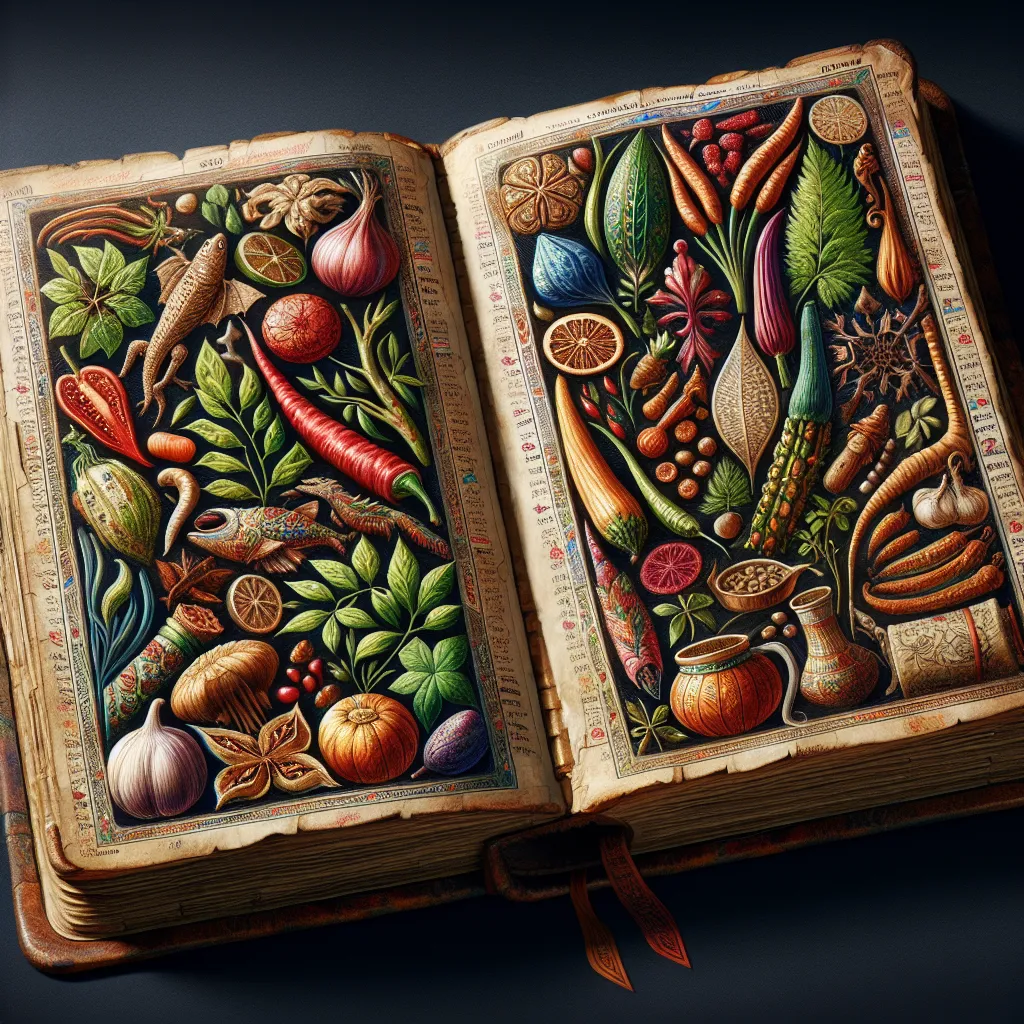Exploring Ancient Flavors: A Culinary Odyssey
Gastronomic adventures offer a unique opportunity to embark on a culinary journey through history, exploring ancient flavors and traditions that have shaped the way we eat today. As we delve into the depths of history, we uncover a rich tapestry of flavors and ingredients that have been passed down through generations, each telling a story of cultural evolution and culinary innovation.
Exploring ancient flavors is akin to embarking on a culinary odyssey, where every taste, aroma, and texture tells the tale of bygone eras. From the spice routes of the Silk Road to the bustling markets of ancient Rome, each civilization has left its mark on the world of food. The exploration of ancient flavors allows us to trace the roots of our modern culinary landscape, understanding how trade, migration, and conquest have shaped the way we eat.
By immersing ourselves in the culinary traditions of ancient civilizations, we gain a profound appreciation for the ingenuity and resourcefulness of our ancestors. From the fermented foods of Mesopotamia to the intricate spice blends of the Indus Valley, ancient flavors open a door to a world of gastronomic possibilities, inspiring chefs and food enthusiasts to reimagine age-old recipes in a modern context.
As we journey through the annals of history, we come to understand that the fusion of flavors from different cultures has been a constant theme in the evolution of food. The exchange of ingredients and culinary techniques has led to the creation of iconic dishes that transcend borders, showcasing the universal language of food.
From the vineyards of ancient Greece to the tea houses of China, the exploration of ancient flavors offers a tantalizing glimpse into the culinary heritage of diverse cultures. As we savor the tastes of history, we not only satisfy our palates but also enrich our understanding of the world through the lens of food.
Reviving Traditional Cuisine: Gastronomic Delights of the Past
Reviving traditional cuisine has become a popular trend in the culinary world, as chefs and food enthusiasts alike seek to rediscover the gastronomic delights of the past. Through this culinary journey, one can delve into the rich history of traditional dishes, ingredients, and cooking techniques, offering a unique opportunity to explore the cultural and historical significance of food.
By reviving traditional cuisine, we can uncover forgotten recipes and cooking methods that have been passed down through generations, preserving the legacy of our culinary heritage. This resurgence of interest in traditional gastronomy allows for a deeper understanding of how food has evolved over time and how it is intrinsically linked to cultural identity.
Furthermore, the revival of traditional cuisine offers a chance to experience authentic flavors and textures that have stood the test of time. From ancient grains and heirloom fruits to age-old preservation techniques, the gastronomic delights of the past provide a sensory journey unlike any other. This movement also fosters a sense of appreciation for local and seasonal ingredients, promoting sustainable and mindful eating practices.
Through this culinary reawakening, we are not only indulging in delectable dishes but also paying homage to the culinary artisans and traditions that have shaped our food heritage. It is a celebration of the rich tapestry of flavors and aromas that have been part of our collective human experience for centuries.
In conclusion, the revival of traditional cuisine presents an opportunity to savor the timeless treasures of gastronomy while honoring the cultural legacy embedded in each dish. It invites us to embark on a gastronomic adventure through history, where the flavors of the past are brought to life once more, enriching and inspiring our modern culinary landscape.
Tracing Culinary Heritage: A Journey Through Historical Recipes
Tracing culinary heritage through historical recipes offers a fascinating glimpse into the evolution of food and its cultural significance. Embarking on a gastronomic adventure that delves into the historical roots of culinary traditions can be a truly enriching experience. Exploring ancient recipes and cooking techniques allows us to discern how various ingredients and flavors have been integrated into different cultures throughout history.
By retracing the culinary footsteps of our ancestors, we unearth a deep connection to the past and gain a profound understanding of how food has shaped societies over time. Historical recipes serve as time capsules, preserving the tastes and aromas of bygone eras, offering a window into the daily lives and rituals of our predecessors.
This culinary journey not only provides insight into the origins of dishes but also sheds light on the trade routes, conquests, and migrations that have influenced culinary traditions. Whether it’s uncovering the spice trade routes of the ancient world or discovering the fusion of flavors resulting from cultural exchanges, historical recipes offer a vivid narrative of human history intertwined with food.
Moreover, recreating historical recipes in modern kitchens allows us to bridge the gap between past and present, fostering a deep appreciation for the culinary ingenuity of our predecessors. Through this process, we can savor the nuances of traditional dishes and recognize the enduring legacy of ancient gastronomy in today’s culinary landscape.
As we explore historical recipes, we recognize the intrinsic link between food and identity, gaining a deeper appreciation for the diversity and richness of global culinary heritage. This culinary journey through historical recipes not only tantalizes the taste buds but also nourishes the mind, offering a profound appreciation for the cultural tapestry woven by centuries of gastronomic evolution.




